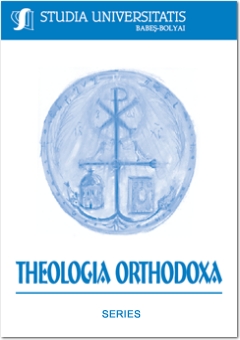SENSUL ISTORIC-ESHATOLOGIC AL CULTURII ŞI CONTRAFACERILE ACESTUIA ÎN CADRUL CULTURII SECULARIZATE
THE HISTORICAL-ESCHATOLOGIC MEANING OF CULTURE AND ITS COUNTERFEITS IN THE FRAMEWORK OF THE SECULARIZED CULTURE
Author(s): Cristinel IojaSubject(s): Christian Theology and Religion
Published by: Studia Universitatis Babes-Bolyai
Keywords: culture-holiness; secularization-transfiguration; historical-eschatologic.
Summary/Abstract: The Historical-Eschatologic Meaning of Culture and its Counterfeits in the Framework of the Secularized Culture. The present study illustrates the relationship between theology and culture, starting from the absolute model of the divine-human Person of Christ and from the theological-dogmatic formulation of Christology in the dogma of Calcedon. The author speaks about the positive attitude of the Orthodox theology vis-à-vis culture, about the principle of selection, which is used by the Orthodox theology regarding each epoch’s culture and about the revelatory criterion from whose perspective the Christians relate to the culture of their time. Culture has not only a strictly historic-immanent meaning, as it is understood in a secularized world, but also a profound eschatological meaning, turning itself towards the Kingdom of God. The Orthodox theology asserts the necessity of assuming, by the Church, the culture of each epoch, namely its positive aspects, trying to transfigure them. In this way, there is a close connection between cult, culture and holiness, as well as between reason and faith, reason and mystics.
Journal: Studia Universitatis Babes-Bolyai - Theologia Orthodoxa
- Issue Year: LVII/2012
- Issue No: 2
- Page Range: 77-92
- Page Count: 16
- Language: Romanian

